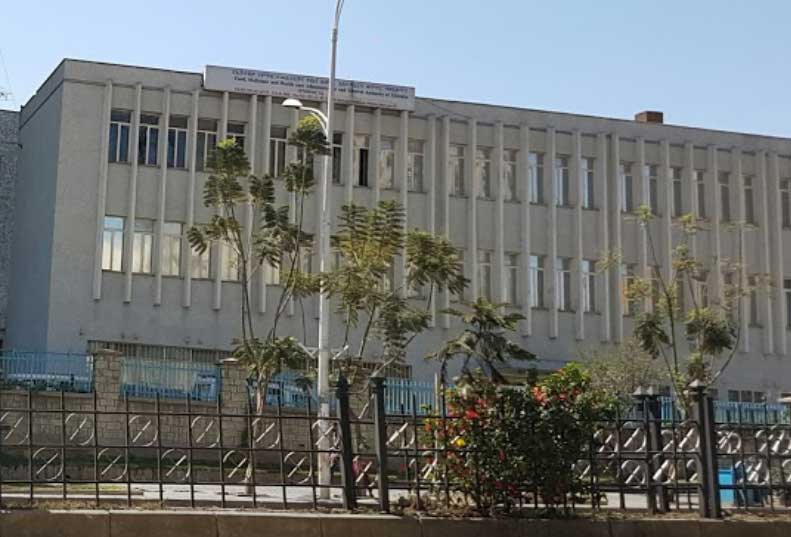
Radar | Jul 15,2023
Mar 16 , 2019
By BERHANE HAILEMARIAM ( FORTUNE STAFF WRITER )
Energy-intensive industries such as textiles, metal and cement are going to sign an agreement with the Ethiopian Energy Authority to control energy losses.
To enact the new system, the Authority has drawn up a directive that will operationalise voluntary energy efficiency agreements. The directive is expected to be effective before the end of this month.
The Authority took experiences from eight countries in drawing up the draft, which awaits approval by the board next week, and worked with government entities such as the Ethiopia Electric Utility.
Manufacturers with an annual consumption of at least 20GWh will be encouraged to enter into agreements with the Authority binding them to energy saving action plans to be met within a certain period. Failure to meet these targets will result in penalties based on estimates of their energy losses.
The Authority, established half a decade ago to regulate the energy sector, targets to put four-fifths of energy-intensive manufacturers across the country under such agreements by the end of 2021.
The regulation for this directive was approved last December by the Council of Ministers. A minimum energy performance standard for electrical motors has been in the process of introduction since last year, as well as measures to reduce power consumption. This directive is expected to be approved in a month, according to Zewge Worku, acting director of the Authority’s Energy Efficiency Conservation Department.
Manufacturers such as Horizon Addis Tyre Factory, which uses fuel for boilers to generate steam and direct electric power from the grid, believe this is a welcome beginning.
“We have managed to reduce our losses by reducing high consumption equipment and old motors and idle running machinery,” says Ayele Yilma, technical manager at Horizon.
The company reduced its fuel consumption by 34pc and electric loss by a fifth in the past six months. Still, the company consumes over twice as much fuel than international best practices recommend, according to Ayele.
Horizon Addis has been consuming 700Kg of furnace oil for each tonne of cured tyres it produces to reduce it to 460Kg. It also used to have an electric loss of 2,000kWh a tonne of cured tyres, which was reduced to 1,600kWh in the reported period.
“We are competing with well-established international manufacturers, thus the sustainable implementation of the directive for the nationwide benefit is crucial,” Getachew Abebe, plant manager of Horizon, said.
Tigabu Atalo, a power and energy consultant with over a decade of experience in the power industry, believes that flexibility is crucial to the process.
“It is commendable that the Authority has chosen agreements, instead of imposing the same directives for all manufacturers,” he said.
Tigabu also added that the enforcement of the directive needs transparent and genuine reporting, evaluation and monitoring systems from both parties as well as incentives for better performers to meet the minimum efficiency standard nationwide.
PUBLISHED ON
Mar 16,2019 [ VOL
19 , NO
985]

Radar | Jul 15,2023

Fortune News | Oct 05,2019

Radar | Mar 30,2019

Radar | Oct 14,2023

Fortune News | Aug 08,2020

Fortune News | Feb 24,2024

Fortune News | Dec 11,2021

Fortune News | Sep 21,2019

Fortune News | Oct 30,2022

Radar | Sep 27,2025

Dec 22 , 2024 . By TIZITA SHEWAFERAW
Charged with transforming colossal state-owned enterprises into modern and competitiv...

Aug 18 , 2024 . By AKSAH ITALO
Although predictable Yonas Zerihun's job in the ride-hailing service is not immune to...

Jul 28 , 2024 . By TIZITA SHEWAFERAW
Unhabitual, perhaps too many, Samuel Gebreyohannes, 38, used to occasionally enjoy a couple of beers at breakfast. However, he recently swit...

Jul 13 , 2024 . By AKSAH ITALO
Investors who rely on tractors, trucks, and field vehicles for commuting, transporting commodities, and f...

Oct 25 , 2025
The regulatory machinery is on overdrive. In only two years, no fewer than 35 new pro...

Oct 18 , 2025
The political establishment, notably the ruling party and its top brass, has become p...

Oct 11 , 2025
Ladislas Farago, a roving Associated Press (AP) correspondent, arrived in Ethiopia in...

Oct 4 , 2025
Eyob Tekalegn (PhD) had been in the Governor's chair for only weeks when, on Septembe...